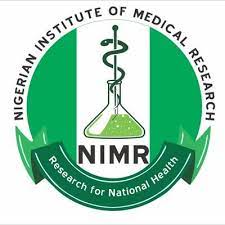90% of health research in Nigeria donor-funded – NIMR
Almost 90% of medical research in Nigeria is funded by donors, Director General of Nigerian Institute of Medical Research (NIMR), Babatunde Salako, has said. He stated this in Abuja during a meeting organised by the organization in collaboration with the Bill and Melinda Gates Foundation (BMGF), on Wednesday. He said health research is still poorly […]

NIMR
Almost 90% of medical research in Nigeria is funded by donors, Director General of Nigerian Institute of Medical Research (NIMR), Babatunde Salako, has said.
He stated this in Abuja during a meeting organised by the organization in collaboration with the Bill and Melinda Gates Foundation (BMGF), on Wednesday.
He said health research is still poorly funded in Nigeria, adding that there is a need to establish direct funding for health research in Nigeria via a dedicated Medical Research Council.
He said the creation of a Nigeria Medical Research Council, with permanent federal funding, will not only strengthen and coordinate health and health-care research, but also provide a competitive funding programme targeting investigators at universities, hospitals, and research institutions while complementing other extramural funding systems such as the Tertiary Education Trust Fund (TETFund).
Don’t sign constitution amendment bills, Abuja monarch tells Buhari
Katsina residents protest ‘hardship’ during Buhari’s visit
He said, “The best thing that can happen to Nigeria is to have its medical research council, which is specifically to fund all health research in the country from universities to research institutes, and other institutions.
“Most modern successful countries have functional research and development through a specific health research funding agency like the National Institutue of Health in the United States of America, and the Medical Research Council in the United Kingdom. Even though government is funding research through TETFund, it is restricted to tertiary research alone that is specifically for universities, and it covers all forms of research and not health alone.”
He said the impact of the Medical Research Council will be felt in the better health indices, number of direct grants to Nigeria, number of locally funded projects and use of policy briefs from research evidence/innovations, as well as home grown solutions to challenges in drugs, vaccine development and the health system.
He called for an amendment to the NIMR act back to its original vision as Medical Research Council as it was called in 1958.
Chairman Senate Committee on Healthcare Services, Yusuf Tanko Sununu, said the National Assembly is working towards improving funding for research in the country. He said that the research grant of NIMR has grown from less than $200, 000 to $6million dollars as at October last year following recommendations on need for improvement during oversight.
He said prioritizing research can improve the foreign exchange earnings of Nigeria.
